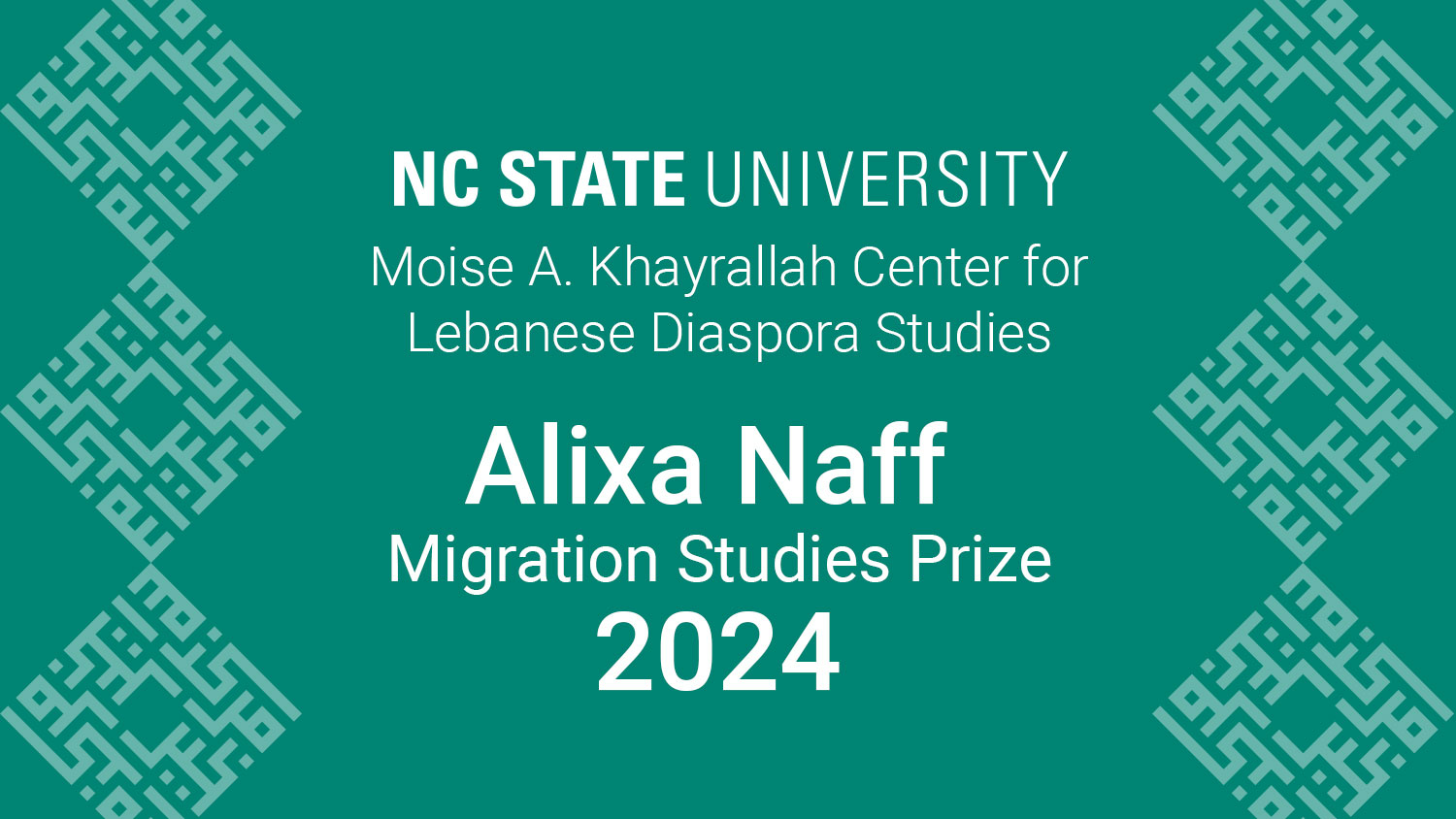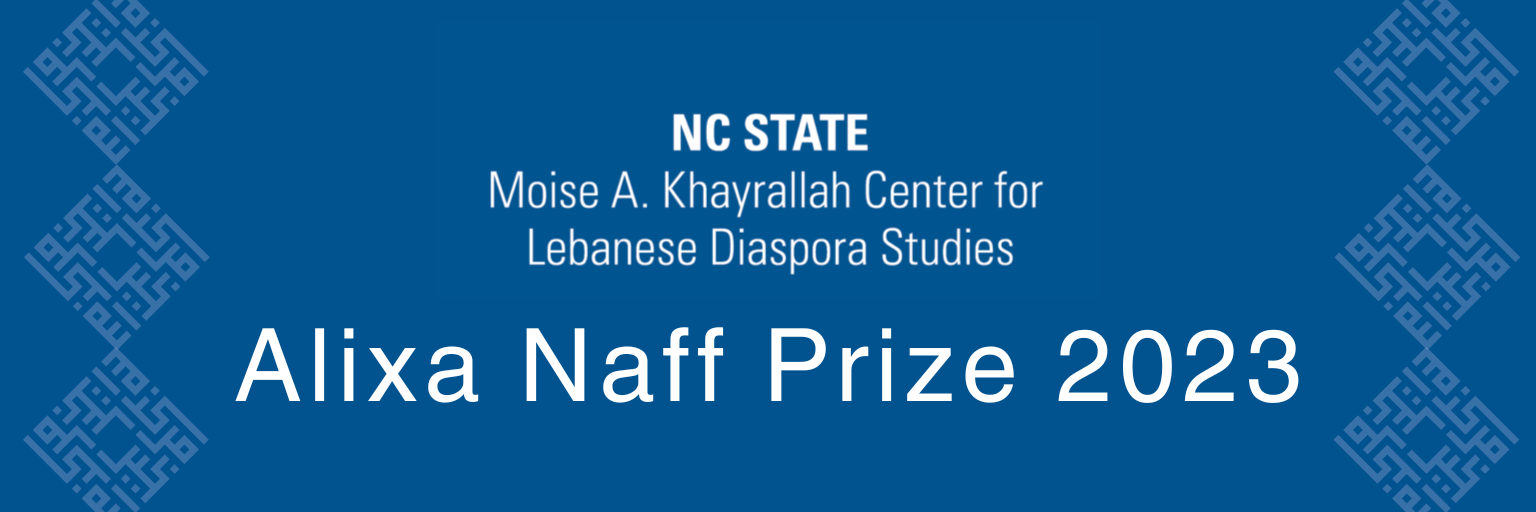Interview with 2016 Khayrallah Prize Winner Joseph Geha
You came to the United States from Zahle, Lebanon at the age of two and grew up in Toledo, Ohio. Tell us something about your early educational experiences.
Because my parents spoke only Arabic at home, when I began school I had very little English. Luckily, my first grade teacher, Sister Barbara, was encouraging and patient. After Catholic parochial school—eight years of nuns, four years of priests—I attended the University of Toledo where I studied creative writing under the playwright Gregory Ziegelmaier.
Did you always know you wanted to be a writer?
I first realized I could write in 7th grade when my teacher accused me of plagiarizing an essay I’d just written in her class. As I sat in the principal’s office listening to the two nuns going over my paper aloud, I remember thinking, “Hmm, that was a good line…. And so was that one!”
On Lebanese Blonde
Can you provide a brief synopsis of your latest novel, Lebanese Blonde?
Lebanese Blonde takes place in 1975-76 at the beginning of Lebanon’s sectarian civil war. Set primarily in the Toledo, Ohio, “Little Syria” community, it is the story of two immigrant cousins: Aboodeh, a self-styled entrepreneur; and Samir, his young, reluctant accomplice. Together the two concoct a scheme to import Lebanese Blonde, a potent strain of hashish, into the United States, using the family’s mortuary business as a cover. When Teyib, a newly arrived war refugee, stumbles onto their plans, his clumsy efforts to gain acceptance raise suspicion. Who is this mysterious “cousin,” and what dangers does his presence pose? Aboodeh and Samir’s problems grow still more serious when a shipment goes awry and their links to the war-ravaged homeland are severed. Soon it’s not just Aboodeh and Samir’s livelihoods and futures that are imperiled, but the stability of the entire family.
What was the most difficult scene to write in Lebanese Blonde?
The early scenes are always hardest for me. I struggle not with getting the material out, but of trying to get too much out too soon. I risk losing the sense of story by cluttering the beginning with exposition, which always stops the forward action. Usually, I can resolve this issue by going ahead and writing the opening scenes however they present themselves; later, when the novel well on its way, I come back to reread with a cold eye, rewrite, trim, and adjust emphasis.
What, if anything, did you edit out of your novel Lebanese Blonde?
My wife, Fern Kupfer, is also a novelist, and we read one another’s works-in-progress. I’m lucky in that she’s not only a wonderfully sensitive reader, but also the toughest, no-nonsense editor I know.
Writers mustn’t assume that readers owe them attention. My job as a writer is to earn a reader’s interest. The worst thing a writer can do is to be boring. What bores us is what does not on any level surprise us. I cut unnecessary explanations, things the reader either doesn’t need to know or else already knows—so why repeat them? There’s a story about an editor reading Moby Dick and scribbling in the margins of passages where Melville goes off on one of his chapter-long tangents about some aspect of the whaling industry, “The fish, get back to the fish!”
Throughout the novel, bilingual and multilingual characters use various languages, registers, and dialects, and frequently code-switch between Arabic and English. What considerations do you take into account when making these decisions as a writer?
When I’m presenting a dialect for a general audience, I need to be aware that the majority of my readers, being unfamiliar with the culture from which that dialect springs, will need guidance. Reading is an effort, and reading long passages of dialect can be a chore. So, rather than try to transcribe a dialect literally (as Thomas Wolfe did in his story “Only the Dead know Brooklyn”) I try instead to use a lighter touch and simply give the suggestion of an accent or a foreign tongue. Above all I try to keep in mind that the primary function of dialogue (accented or not) is to reveal character. Every time fictional characters open their mouths to speak, they give themselves away.
Writing Arab America
What distinguishes Arab American literature from other ethnic American literary movements?
For one thing, the scope of our experience is unique in that it can encompass such a wide range, from assimilated and unassimilated Americans, to Christian and Muslim traditions, to white and various shades of non-white ethnic experience.
Do you ever feel that you are burdened by the task of “introducing” Arab American culture and society to an audience to whom the fictional world in your text is a social and cultural “other?”
If I am burdened, then so too is every writer who mines his or her own life experience for material. All story telling is founded on conflict; as soon as we begin trying to “introduce” our experience to a wider audience, we begin to deal in conflict, and on many levels, from societal to the deeply personal. I more often feel delight rather than a sense of being burdened, maybe the same way a translator feels when he or she is meeting the challenge of “getting it right.”
The Writer On Writing
Which writers inspire you?
Coming up in the 60’s, I prefer the realists—Yates, Updike, Cheever; more currently, writers like Elizabeth Strout, Bernard MacLaverty. Early on, models from the Arab American experience were few and far between. Nowadays they can be found making their mark not only in American fiction, but also in poetry and drama, in literary criticism and the lyrical essay.
How much research goes into your novels?
A lot. Often much more than I need, so that when it comes time to use that research I either have to integrate it or whittle it down so that it doesn’t appear as research. While composing a piece of realistic fiction, I feel my task isn’t so much to replicate reality as to establish the sense or “feel” of the authentic, which the careful choice and placement of facts can create. For the funeral home business in Lebanese Blonde I interviewed several morticians, toured the private areas of funeral homes, read mortuary science text books used in the 1970’s (the time of the novel). Another valuable aspect of research is the key principle: In facts reside ideas.
How have you evolved creatively from your first to your most recent published work?
When my first story was accepted at the Northwest Review the acceptance note came with three single spaced pages of suggestions for revision from the editor, Patricia Brooks. I remember wondering how could I change my deathless prose for the sake of an editor? Then I sat down and looked at her suggestions. They had to do with verb tense changes, suggesting I try switching from simple past in one scene to present tense, then cast the next scene in future conditional, and so on. Well, I decided to swallow my pride and try her suggestions for the first three pages or so. Then I sat back and read those pages aloud. The story and its characters simply opened up like a flower. Boy, did that editor know her business! I’ve had plenty of other suggestions since then that didn’t or couldn’t work, but I at least listened to them. I learned to listen.
You have taught English and creative writing at American universities for over four decades. How does your teaching complement, complicate, or enrich the writing process?
If there is a drawback to a writer teaching writing, it’s that over the years his or her critical sense can become too sharply developed. I believe that it’s good for a writer to have a strong internal critic. But that critic must come with an off switch, because even more important than being “right” is that ones creative inner being—child if you will—be allowed to dabble, to play, to try things out. It’s been my experience that encouraging fledgling writers can enlighten and inspire the teacher as well as the student.
If you could tell your younger writing self anything, what would it be?
Keep up your Arabic, learn to read and write it. Arabic was my only language until I was almost six; in its rhythms and the richness of its shadings reside the earliest things I ever learned and felt, the world as it was first explained to me.
What does it mean to you to win the Khayrallah Art Prize?
I’m honored to have my novel recognized by the Khayrallah Center whose mission helps deepen our understanding of the Lebanese Diaspora experience. This goal is especially significant in our current political climate, as it resonates from the turmoil in Syria and Libya, to the immigration conflicts in Europe and the United States, and to wherever else on this planet strangers are arriving in strange lands, leaving all they’d known, seeking refuge and a new homeland.
- Categories:


